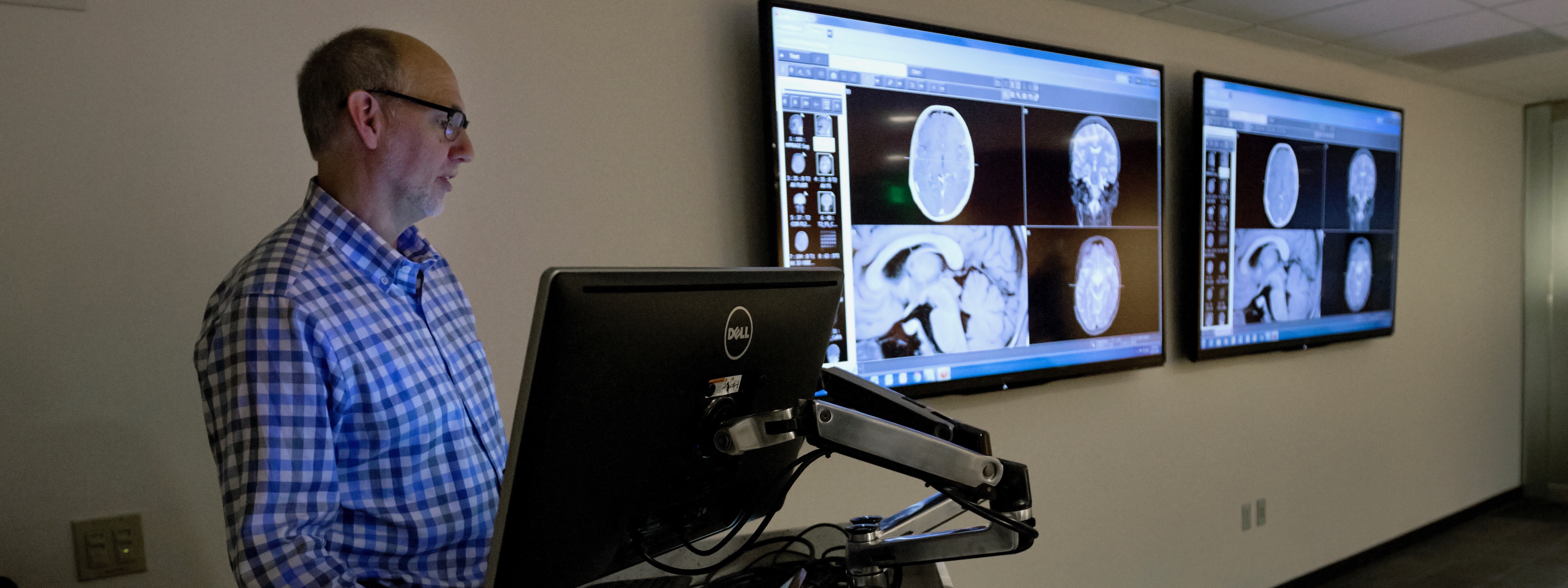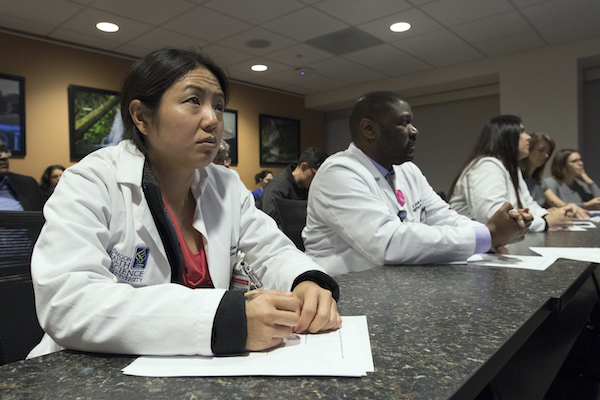Pediatric Brain Tumor Board

The doctors at OHSU Doernbecher Children's Hospital understand that every child with a brain or spinal cord tumor is unique. That’s why they meet every week to examine cases together. This gathering, called the Pediatric Brain Tumor Board, helps rank Doernbecher among the best U.S. children’s hospitals.
The board ensures that your child:
- Receives the best possible course of treatment.
- Benefits from the knowledge of a complete array of pediatric specialists.
- Is treated by experts with a full understanding of how children’s brain tumors differ from those of adults.
- Has access to the latest discoveries and clinical trials.
How it works
Many providers: About 20 doctors and other health professionals from a range of pediatric specialties — neuro-oncology, neurosurgery, radiation oncology, neurology, neuropathology, neuroradiology, research and others — meet in a conference room each week at 7 a.m. Notes detailing the history of each case are handed out, and the group goes through cases one by one.
Scans: The doctor who knows the most about the child starts by sharing information, such as current issues and concerns. A neuroradiologist displays MRI scans of the child on large screens and offers expertise on what the scans show. The radiologist can toggle among scans from different dates or put scans side by side to show changes.
Slides: If tissue samples have been taken, a neuropathologist displays slides showing cells from the tissue under a microscope. The pathologist offers expertise on whether the slides show cancer, and if so, what type.
Discussion: Then the discussion begins. Often, doctors work together to develop a treatment plan. An ophthalmologist might weigh in on how to preserve the vision of a child with an optic-nerve tumor. A neurosurgeon might outline her surgical plan. A neurologist on the front lines of research might suggest an option for a child whose cancer has resisted standard treatments.

Why it matters
Doernbecher is the only Oregon children’s hospital that offers this advanced level of collaborative care for pediatric brain and spinal cord tumors. The benefits include:
Your child’s case is looked at from multiple angles.
- Doctors work together to carefully balance the pursuit of a cure against the side effects of treatment.
- The doctors take advantage of one another’s expertise. Oncologists, for example, are used to seeing tumors. Before recommending an invasive test, they can ask a neurologist if another disorder should be considered.
- Your child’s treatment is repeatedly evaluated and adjusted by multiple specialists.
- Your child’s overall well-being, and your concerns and wishes, are part of the discussion.
The latest discoveries and clinical trials are considered.
- Doernbecher is part of OHSU’s Knight Cancer Challenge, with specialists leading studies to fight children’s brain tumors. Our doctors include researchers who know the latest advances, here and around the globe. This means every option can be considered.
- Doernbecher belongs to elite research networks with other top children’s hospitals. This gives our patients access to national-level clinical trials.
The focus is on caring for your child.
- Doernbecher’s doctors have international-level expertise. But at tumor board meetings, they leave their egos at the door and focus strictly on the best plan for your child.
- For especially complex cases, doctors confer with colleagues at other top children’s hospitals. This ensures that your child receives the best possible care with no need to travel anywhere else.